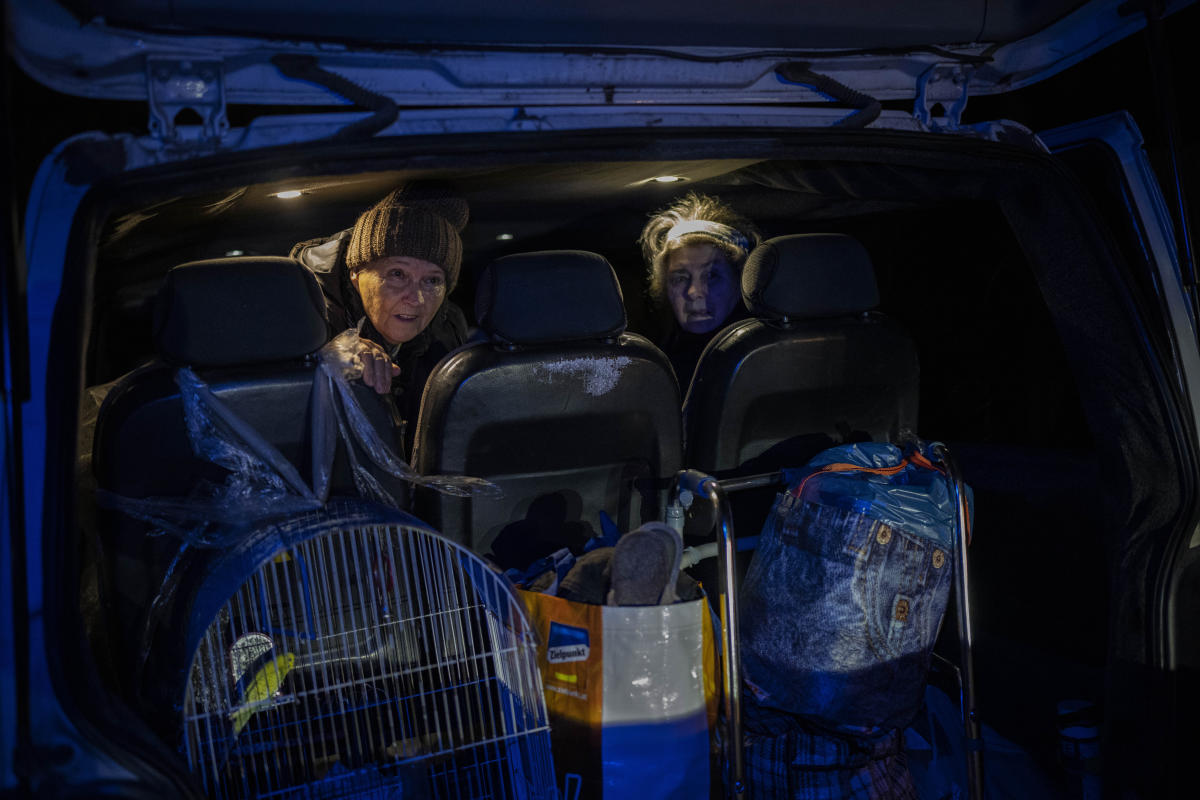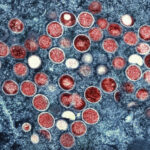
KYIV, Ukraine (AP) — Ukraine prepared for more Russian strikes against energy and other key infrastructure Monday in what appears to be a weekly pattern, and warned of possible evacuations from the capital.
Estonia’s foreign minister joined counterparts from six Baltic and Nordic nations — in the largest delegation to visit Ukraine since Russia launched its full-scale war — to pledge electric generators, warm clothes and food. The goal is to help Ukrainians cope with their coldest months of need and keep their resolve high.
“Russia is weaponizing civilian energy security, and it is truly shameful,” Estonian Foreign Minister Urmas Reinsalu said in Kyiv.
Ukrainian President Volodymyr Zelenskyy warned late Sunday that Russian troops “are preparing new strikes, and as long as they have missiles, they won’t stop.” He met Monday with senior government officials to discuss what actions to take.
“The upcoming week can be as hard as the one that passed,” he predicted.
NATO Secretary-General Jens Stoltenberg insisted Russian President Vladimir Putin was intent on using frost, snow and ice to his advantage, not only on the battleground but against Ukrainian civilians.
“President Putin is now trying to use the winter as a weapon of war against Ukraine, and this is horrific and we need to be prepared for more attacks,” he said on the eve of a two-day meeting of NATO foreign ministers in Bucharest, Romania. “That’s the reason why NATO’s allies have stepped up their support to Ukraine.”
Kyiv Mayor Vitali Klitschko said some of the city’s 3 million people might have to be evacuated to where essential services would be less prone to shutdowns caused by missile attacks.
For weeks, Russia has been pounding energy facilities around Kyiv and other Ukrainian cities with missile strikes, usually on Mondays at the work week’s beginning, resulting in outages of power and water supplies.
Based on the pattern of infrastructure attacks and the Russian military’s preparation time, an advisor to Ukraine’s interior minister said on national TV that the next strikes could occur as soon as later Monday or in another week. A Ukrainian military spokesman also said on national TV that Russian aircraft had intensified their activity over Ukraine on Monday.
With temperatures hovering around freezing, and expected to dip as low as minus 11C (12 Fahrenheit) in little more than a week, international help was increasingly focused on items like generators and transformers, to make sure blackouts that affect everything from kitchens to operating rooms are as limited and short as possible. The power situation was so dire that Ukraine’s energy trader — in normal times an exporter — tested importing electricity from neighboring Romania.
Russian President Vladimir Putin “continues trying to make Ukraine a black hole — no light, no electricity, no heating to put the Ukrainians into the darkness and the cold,” said European foreign policy chief Josep Borrell, who is leading a meeting of EU ministers in Bucharest, Romania, to help Ukraine with its humanitarian crisis. “So we have to continue our support providing more material for the Ukrainians to face the winter without electricity.”
Ukraine’s energy provider Ukrenergo said Monday that it is still short 27% of output and that “the scale and complexity of the damage are high, and repair works have continued around the clock.”
Power supply was restored to 17% of residents in the southern city of Kherson, which Ukraine reclaimed earlier this month. The Russians have continued pounding the city with artillery barrages from newly consolidated positions across the Dnieper River. Britain’s Defense Ministry reported that the strikes reached a record high, 54, on Sunday.
Ukraine’s presidential office said Monday that at least four civilians were killed and 11 others wounded in the latest Russian attacks. It said intense fighting is continuing in the east, with the Russians shelling Bakhmut and Toretsk.
“People are sheltering in the basements, many of which are filled by water,” said Donetsk Gov. Pavlo Kyrylenko. “They have been living in catastrophic conditions without power or heating.”
Also Monday, Russia denied that it plans to withdraw from the Zaporizhzhia nuclear power plant in southern Ukraine, which it has occupied since the early days of the war.
Kremlin spokesman Dmitry Peskov said in a call with reporters that it was pointless to look for signs of a pullback from the plant “when there are none and there can’t be.”
Peskov’s comments were in response to Ukrainian claims that Russian forces were bound to retreat from the plant as they face a Ukrainian counteroffensive.
The plant was shut down because of repeated shelling, for which Russia and Ukraine have traded blame. The U.N. nuclear watchdog and international leaders have urged Russia to demilitarize the plant to avoid a nuclear disaster, but Moscow has rejected the demands, arguing that it needs to maintain troops there to ensure its safety.
—-
Raf Casert contributed from Brussels.
___
Follow AP coverage of the war in Ukraine at: https://apnews.com/hub/russia-ukraine




